In February of this year I spent a couple weeks in the Guanzhou area of southern China. While I was there I had the good fortune of meeting the parents of one of my colleagues. They were gracious enough to show me around, invite me to meals, and so on. Since they were both retired, they had time on their hands. One day we traveled together to the nearby city of Foshan. I was doing some research on various topics related to Chinese popular culture and wanted to visit the Buddhist temple at Foshan as it is a famous place for Chinese martial arts. This is where the famous martial artist Wong Fei-hung came from . It is also the birthplace of the other famous martial artist, Yip Man.
We spent a couple hours wandering around the beautiful monastery enjoying the gardens and the various buildings.
There was also an outdoor martial arts show that we watched as well. It was pretty touristy but the many Chinese tourists seemed to enjoy it.
In one hall of the monastery there was a museum dedicated to Wong Fei-hung (huáng fēi hóng 黃飛鴻). Most of the space was dedicated to talking about all the movies that have been made about his life (more than 100). It was a pretty interesting exhibit. It is interesting how legends are born and propagated.
While we were in the exhibit talking about the importance of martial arts in Chinese culture, I remembered an event that happened many years ago, which I shared with my friends. This is the story.
Shortly after I was hired at BYU to teach Chinese I was contacted by a martial arts instructor, the late Ron Heimburger, about some translation work. He was a Wing Chun Kung-fu (詠春功夫 yǒng chūn gōngfū) master who had been trained in Hong Kong. Many of the names of the various kung fu moves were in Cantonese and he needed some help translating the terms. It sounded pretty interesting so I agreed. We met a couple times and I helped him translate some terms. He was a very nice guy and I enjoyed chatting with him. About a year later he contacted me again with another offer. A Wing Chun Kung-fu Grandmaster (the person he was trained by) was coming to Utah to conduct a kung-fu camp. He did not speak any English and they needed someone to come to the camp to interpret for him. This Grandmaster was Yip Ching (葉正 yè zhèng), son of the famous martial artist Yip Man (葉文 yè wén). I had no idea at the time who any of these guys were. Again, it sounded interesting, so I once again agreed to help out. This was in 1997.
The camp was held at a ranch in the hills outside Fairview, Utah. This is a rural farming community about 120 miles south of Salt Lake City. I spent two days at this kung-fu camp interpreting for Yip Ching. He was a nice old man and I enjoyed hanging out with him. The highlight for most of the participants, which consisted of about 100 Wing Chun martial artists from around Utah, was when we all gathered one evening in the lodge and Yip Ching told the story of his kung-fu lineage. This is pretty important to marital artists. He explained who trained him, and who trained him, etc. all the way back to the famed Shaolin Temple where Chinese martial arts originated hundreds of years ago. It was an interesting story. It was also interesting to see how enamored these kung-fu students were to actually be in his presence. One guy whispered to his friend, “he touched my arm!”
He was trained by his father, Yip Man, in Foshan, in Guangdong Province. His father was also the kung-fu master for the famous Bruce Lee. Yip Ching and Bruce Lee were trained together at the same time by his father. I once asked him about Bruce Lee, and he replied that he was a mediocre martial artist, and was more into show than anything else. Yip Ching and I got to know each other fairly well during those three days, and before I left he gave me his card and told me that if I was ever in Hong Kong, to look him up.
One year later I was passing through Hong Kong after spending a couple months in Mainland China directing a study abroad program. I gave him a call. He invited me over to his house for tea. It was a typical, small, modest flat in the Mong Kok area of Kowloon. I met his wife and we chatted for awhile. We then walked over to his kung-fu studio that was nearby and he gave me a tour of the place. It was nice seeing him again.
I told this story to my friends and they were totally blown away. They couldn’t believe that I actually had met and knew Yip Ching, son of the famous Yip Man. They went around telling strangers in the museum that I was Yip Ching’s interpreter. I thought that was pretty funny.
Now back to my visit to Foshan. As we were leaving I noticed another hall that we had not visited, and I noticed that it said Yip Man Hall.
We went over and it was a new museum all about Yip Man. It was even more interesting than the Wong Fei-hung museum. There were lots of artifacts, photos, and stories about his life.
Then we entered one room that was dedicated to how Wing Chun kung-fu has spread around the world. It showed photos of Yip Ching holding kung-fu camps around the world and training all kinds of foreigners in Wing Chun kung-fu. Then, I couldn’t believe my eyes. There was the story about the Utah camp, and there was a photo of the camp’s participants, and there I was in the photo. Granted the photo was too small and grainy to really make out the faces too well.
If my friends were impressed before, now they could hardly contain themselves. I was very amused by all this and thought, what are the chances of this happening. It was pretty incredible. Needless to say, they were very impressed and practically treated me like a celebrity.
So that’s my kung-fu story. I have another one too, about a visit to the Shaolin Monastery in China, but I’ll save that for another post.
Here are a few more photos from the Ancestors Temple.

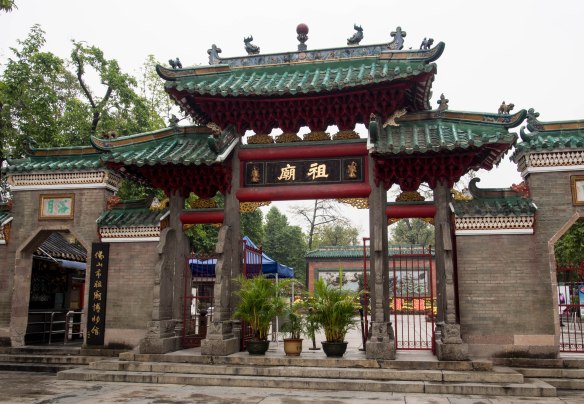
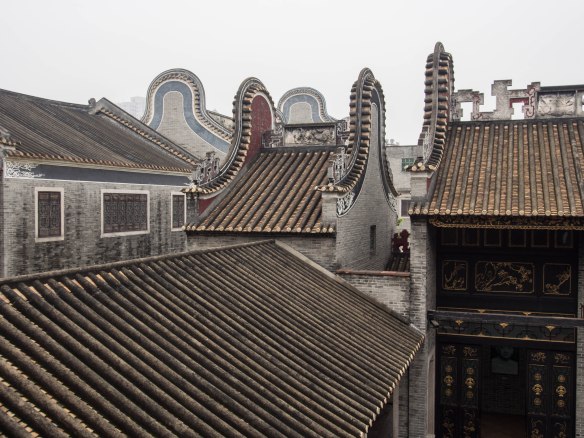
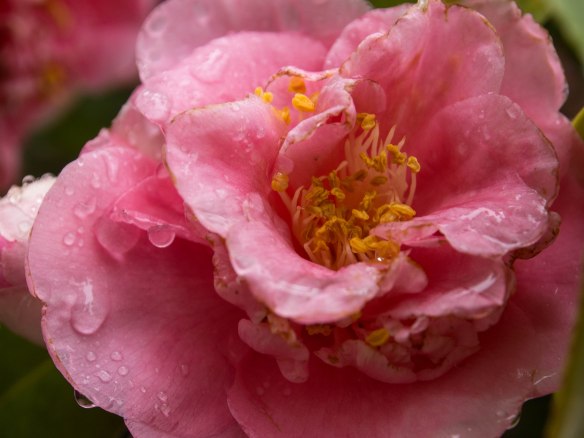
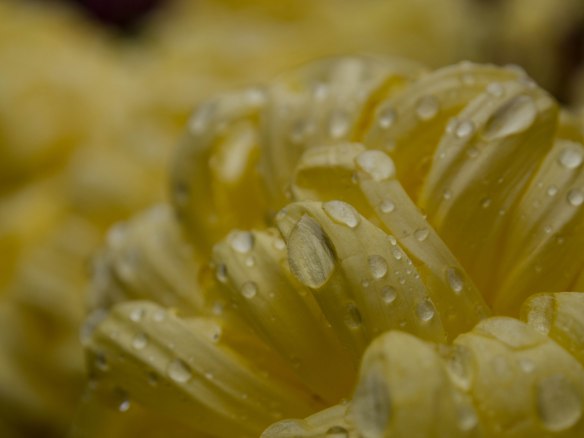
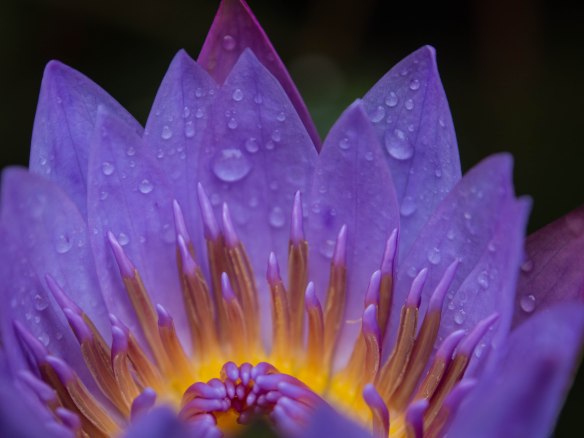
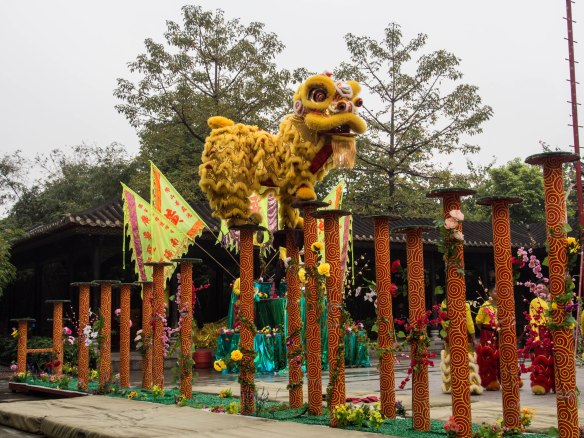
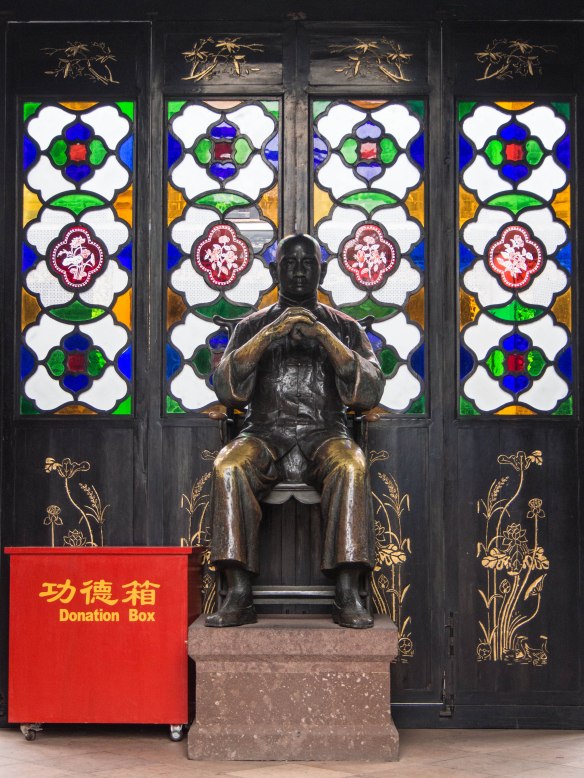
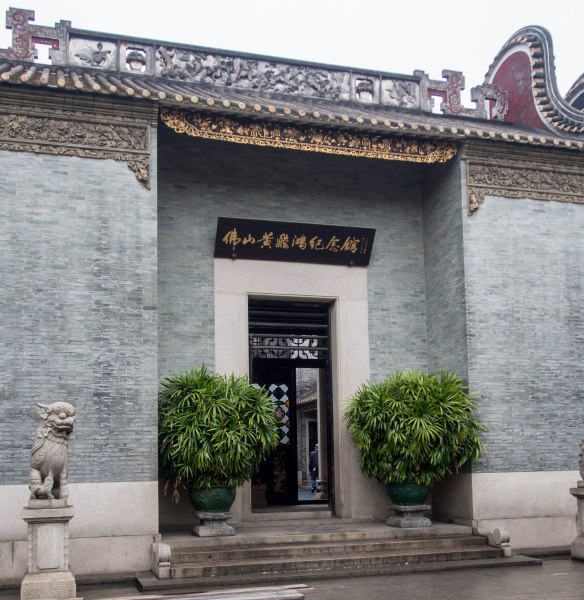
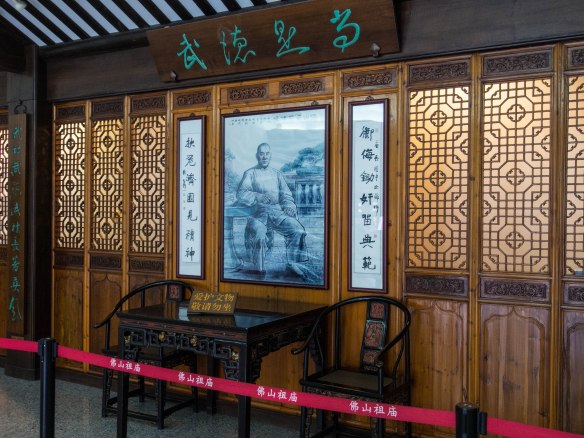
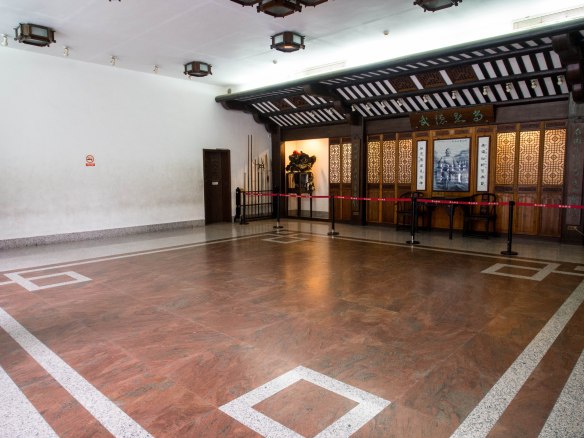
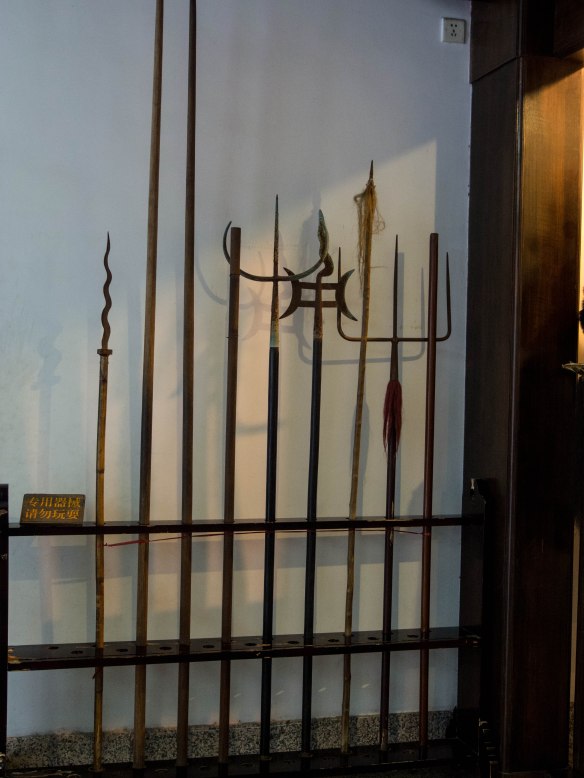
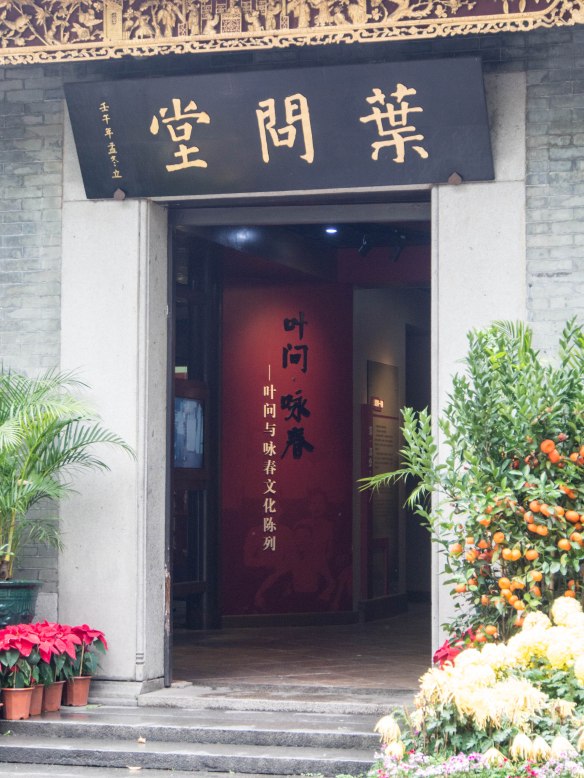
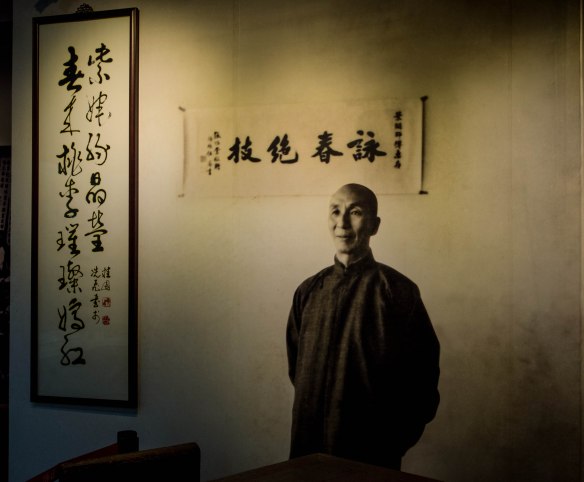
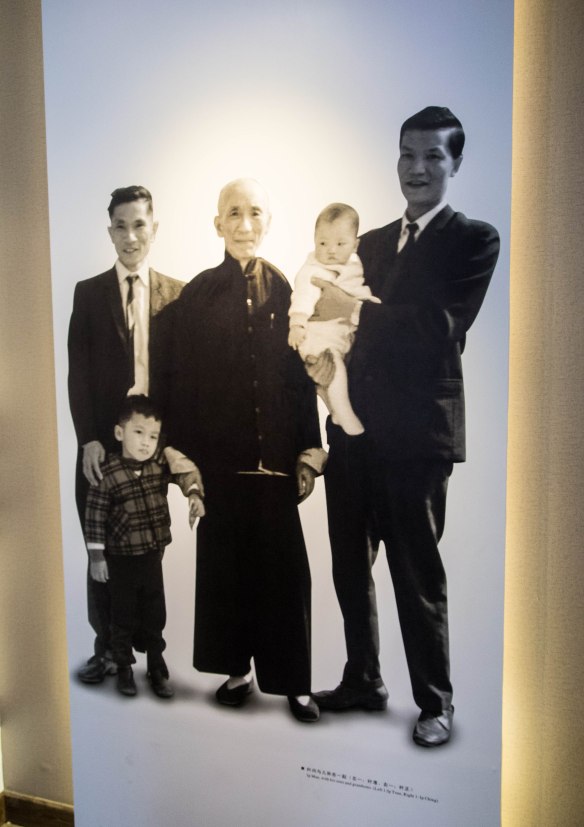
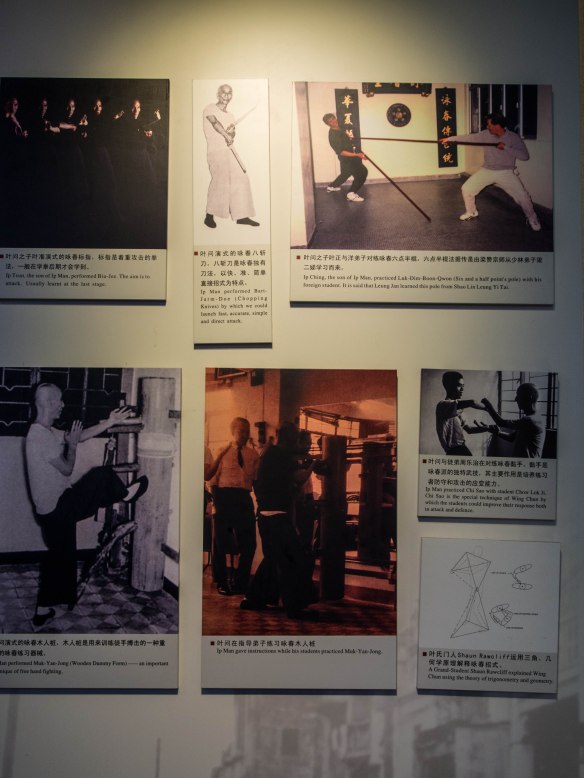
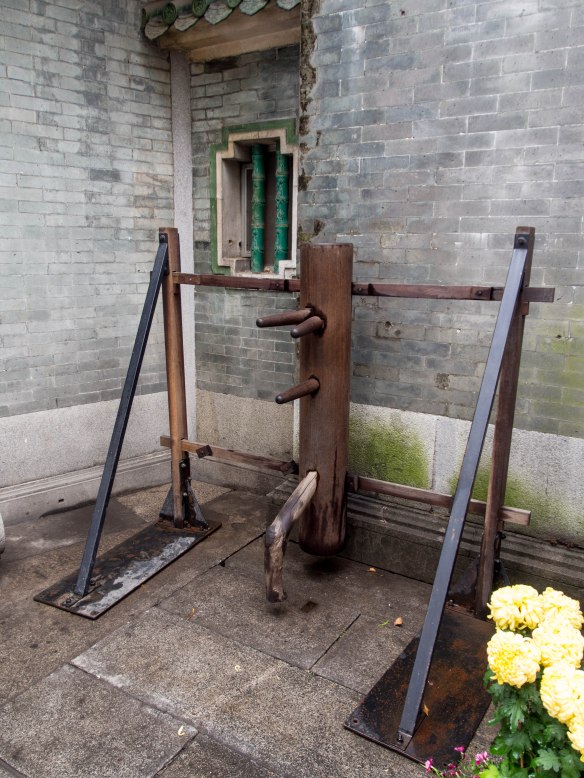
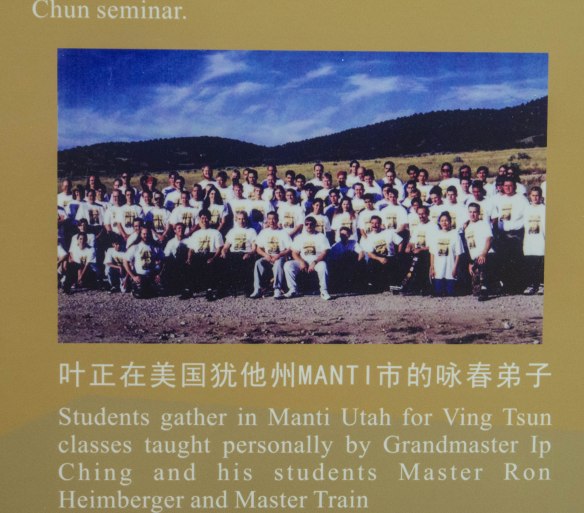
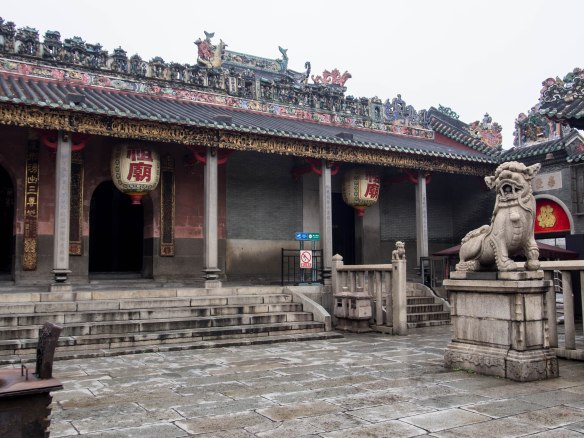
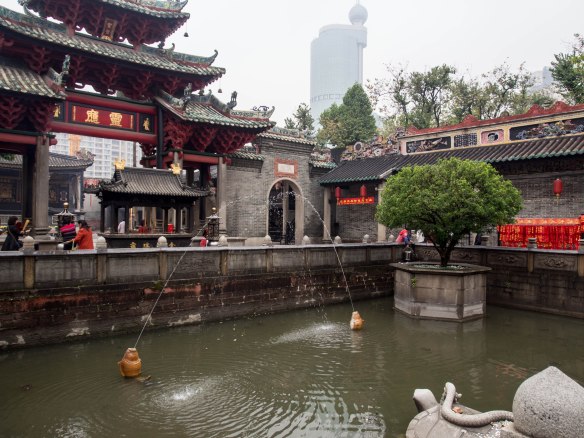
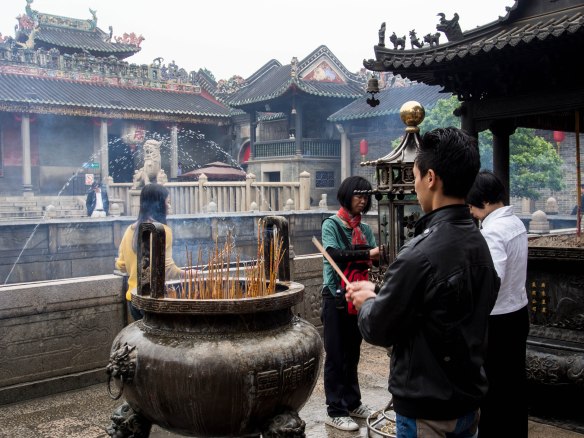
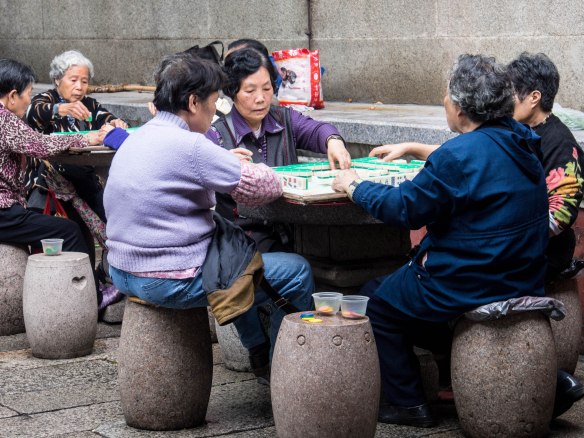
What an awesome story! You’re a lucky guy to meet him and see his training. Did you get to train with him at all? Not sure how into Wing Chun you are but I’m currently learning Wing Chun in China at a school up in Shandong. Not a traditional place for Wing Chun, but the master comes from Guangdong and trained in Foshan. It’s been a bit of a learning curve for me as I had trained in Yip Man’s style previously and this is a little different, softer and with more focus on qi and power generation. You can check it out here: http://www.learnmartialartsinchina.com/
I’m interested if when talking with Yip Ching he mentioned other lineages? My master has trained in three lineages, including Yip Man’s and has assimilated different aspects into his own style and respects them all.
Buddhist temples have outdoor martial arts shows.
What Yip Ching said about Bruce Lee is really funny to hear about. My father at a point was a professional martial arts trainer, he had at a point trained under one of Bruce Lee’s students and the student had always said that Bruce Lee thought that standard martial arts were for show and the techniques didn’t have any necessary merit in actual fighting.
Such an interesting story to have to share! This was someone who was famous in his own way because of who his father was, but still a normal person, modestly living. It’s humbling to realize and remember that.
I believe many people may think of Kung fu when they are talking about China so this article was especially more interesting to me than other articles. I am proud of learning knowledge of kung fu!
I never knew that chine had temples dedicated to Kung Fu masters, they really do have a lot of propaganda for them. I always knew martial arts has a long history, but the fact that you met someone who can date his lineage all the way to the start is remarkable. I love tat Chinese culture is all about preserving the past, America is always trying to change its past and change the future. There’s something about Chinese culture sentimentality that touches me. I think their respect of their past makes them so strong.
It was really interesting reading about the historical figure who developed the Kung Fu in China. Wong- Fei Hung was the first person who made the Kung Fu to whole another level. Also nowadays there are still other Kung Fu masters who try to spread this sport and history not
That is so cool! I think it is really amazing your journey about learning about the history of martial arts and how humble you were with it. It is neat to be considered a part of history now! I intern for the Confucius Institute at the University of Arizona and I have read a lot of martial arts and this was very interesting to read.
It’s fascinating to think about the number of different styles of Kung Fu yet how so many people, including those from completely different cultures, can come together and unite around them, as seen in your story. Amazing that you are part of Kung Fu history and got to meet such important figures in the Chinese Kung Fu world.
Kungfu is amazing. it wasn’t just a martial art it was a very meaningful thing to people back in the time. and it was also a thing that identifies themselves as who they are.
Wow, I didn’t know kung fu was so important in Chinese history. it’s amazing to see how many types of martial arts there are.
It is refreshing to see martial arts in their true form, given that most countries only take the combative application and abandon the tradition and original meaning. Martial arts and the different disciplines or styles shouldn’t be evaluated as one against the other or one better than the other but are simply the artist introducing themselves and telling a story. Its great to see someone actually capture the true essence of something.
That is so cool! I am an East Asian Studies Major at the University of Arizona and find these types of intricacies within Chinese culture very interesting. When I was reading it, some parts reminded me of the monk in the Water Margin, or the monk in the Journey to the West. I do not know why, but they do. Both are very interesting, and I find it intriguing how kung fu or martial arts in general can shape or be shaped symbiotically by Buddhism. I wish I could go so this place; from your description it describes an equamity to the vigorous progression of Chinese study through time. Thank you for sharing!
I think the level of respect and admiration shown for Yip Man and Kung Fu as a whole is really cool. I also thought that the architecture of the Ancestors Temple was very cool. I did not know that ponds were such an important aspect of temples.
I am a big fan of Yip Man and I think that it is incredible that you got the opportunity to meet his son! That Buddhist Temple is also extremely incredible looking and it really demonstrates how important their religion is to them. Martial arts has been a staple in Chinese and East Asian culture for hundreds of years, I always love to see traditions and art continuously live on within a culture throughout several years of history. I am currently a Mandarin student in college and one of the main reasons I wanted to learn the language is to possibly get some opportunities such as yours in the future!
That is so cool that you got to teach such a famous person! It must have been such a cool feeling to be part of such a famous Musume, and be unaware of it! Everything in the museum looks so beautiful! I especially liked the pictures of the pods, ad the photos of the flowers.
I have always found martial arts to be renditions of beautiful movements, more than self defense training. It is so nice to see the poses and movements of the different types of martial arts. It’s great that Yip Ching has dedicated himself to teaching Wing Chun kung-fu around the world. It is a great way to spread the culture and practice. I’m sure his father is very proud. I would love to see him training others in action.
I can’t believe you interpreted for Yip Chung! That is really incredible. I can’t imagine how crazy it must have been to find out later that he was the son of Yip Man, and how it must have felt to see Yip Chung in the photographs in the museum. The museums you visited are so interesting. I love all of the documentation and photographs they have.
It’s interesting to hear about how martial artists can have the same kind of celebrity reputation in China as movie stars have here in the US. I find it interesting, but not surprising, that Jackie Chan would be considered an OK martial artist. I think many people watching his movies think that what he does is the epitome of martial arts when it is, in fact, so much more than just the showy stuff.
What a wonderful story! One of my favorite Cantonese movies is Ip Man movie series and it is fascinating to see photos of Ip Man with his family and photos of the monastery dedicated to Wong Fei-hung. It is great to see the preservation of martial arts, Chinese culture and traditions. I hope to visit Foshan someday soon!